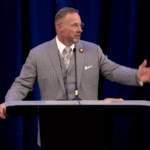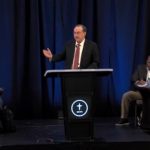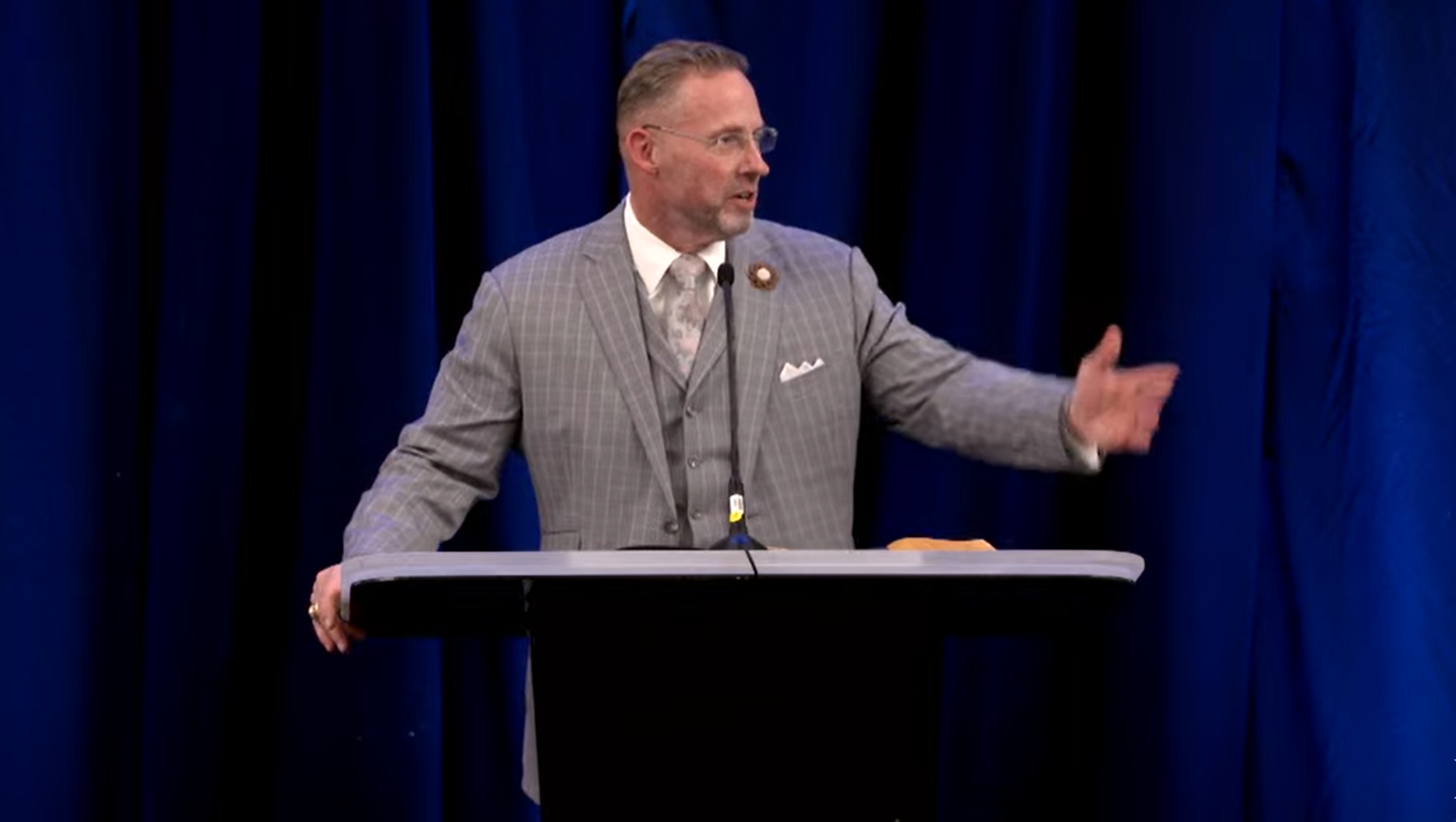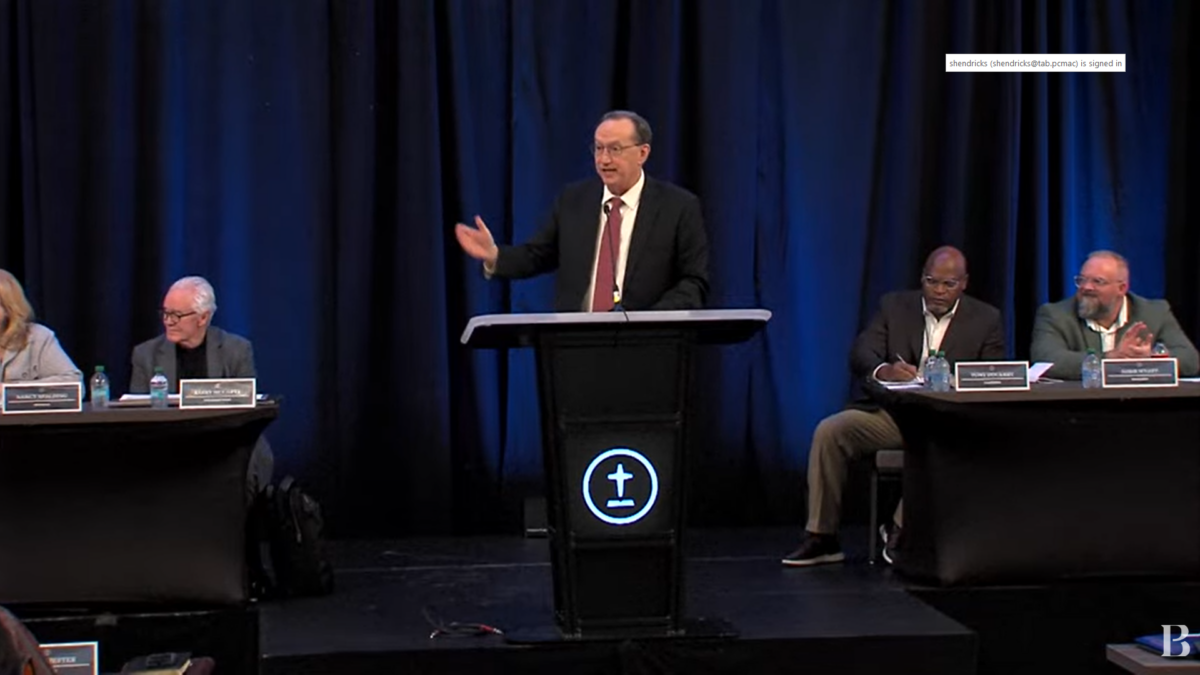Within a short time of the surprising and disappointing accounts released in the SBC’s investigation of handling abuse claims within the denomination, this question came up: What will I say?
Pastors fielded questions from friends and church members, people both outside and inside Southern Baptist life — and likely still are.
Beyond the usual queries that follow national crises such as mass shootings (“Why does God allow bad things to happen to good people?”), this kind of crisis becomes less theological and more personal.
In light of these shocking reports, the questions are more like, “What are we going to do? What are you going to do?”
The many statements of lament from denominational leaders offer a little assistance, but there’s more to it than expressing sadness when people are questioning not only the horrific reports of abuse, but wondering, maybe for the first time, the value of their relationship to the SBC.
Say it like it is
As a pastoral response I’m willing to express what many people are feeling: shock, anger, sadness, disappointment.
Once I got past the jaw-dropping aspects of the report, I began dealing with my own feelings of dismay and disappointment with the actions of leaders I respected and trusted. Some of the more salacious aspects of the Guidepost Solutions investigation and the mainstream news reports that followed its release were attached to big names in the denomination — people I have covered, met or known indirectly through their colleagues or families.
At the same time I’m hearing the voice of New Orleans pastor and former SBC president Fred Luter who sums up our fallen world this way: “What can we expect? Sinners gonna sin.”
That’s true of abuse itself. And it’s true of those who failed to treat survivors with Christ-like compassion, denied them due process, did not report the actions of credibly accused pastors and church leaders and left perpetrators free to repeat their abuses in another church.
That we live in a fallen world is not an excuse for any of this, but it may say to us to take a hand and raise our jaws back into place.
Sin affects everything and everybody, even the church and our beloved denomination. Knowing this should make us all the more vigilant to stop sin’s pernicious and debilitating spread.
As a pastoral response to the question of our own actions on the local level, I would look into the Caring Well initiative and other ministries like it that focus on the needs of survivors and their families. But the families of the accused also need ministry. It’s hard to provide care in those situations, but it must be done, in the way of Jesus. And the church that prepares ahead of time won’t be caught off guard.
I’ve learned a lot about mandatory reporting in recent years. Things pastors might have considered protected communication within a sort of Baptist confessional are not legally protected because the physical and emotional well-being of children and vulnerable adults is at stake.
Today it’s up to law enforcement to determine if an accusation is credible, not a pastor or a deacon board. Our responsibility is ministering care to everyone involved after the allegation has been made and reported to authorities.
We will be asked about our continued partnership with the SBC and its financial support through the Cooperative Program. Can I admit that for a few moments I thought about this myself?
As one whose work has been promoting CP-funded missions since 2009, and whose income has been derived from faithful CP giving, the question may seem a bit hypocritical, but it’s a human response. Confronted by denominational failures it’s fair to ask, “What have I been committed to? Is it working?”
I concluded I have been engaged in something with eternal value, despite its temporal failures. And when I look across the globe at congregations and missionaries able to share the gospel of Christ because of our collective partnership, the salvation of lost souls, the exaltation of Christ and the edification of His Church, these are all worth my continued support.
Rerouting money away from particular SBC entities will not make correction and redirection any easier.
Not the end of our work
One prominent former SBC leader called this moment “the Southern Baptist apocalypse.” I understood his anger, but I disagreed with his conclusion. Apocalypse means the cataclysmic end of something.
This is not the end of Southern Baptists or our gospel mission work.
Grassroots Southern Baptists have clearly demonstrated a desire to do what’s right. The investigation was not forced on us. When confronted with the realities of abuse, SBC messengers stood up and demanded action. They also know this is not only the responsibility of denominational executives, pastors, senior leaders and Sunday School teachers, but also every one of us. Right here. Right now.
With God’s empowering, we will right our wrongs, clean our leadership house and correct our course.
“Truly, I say to you, as you did it to one of the least of these … you did it to me.” (Matt. 25:40).
EDITOR’S NOTE — This opinion piece was written by Eric Reed, editor of the Illinois Baptist, and first published at illinoisbaptist.org.









